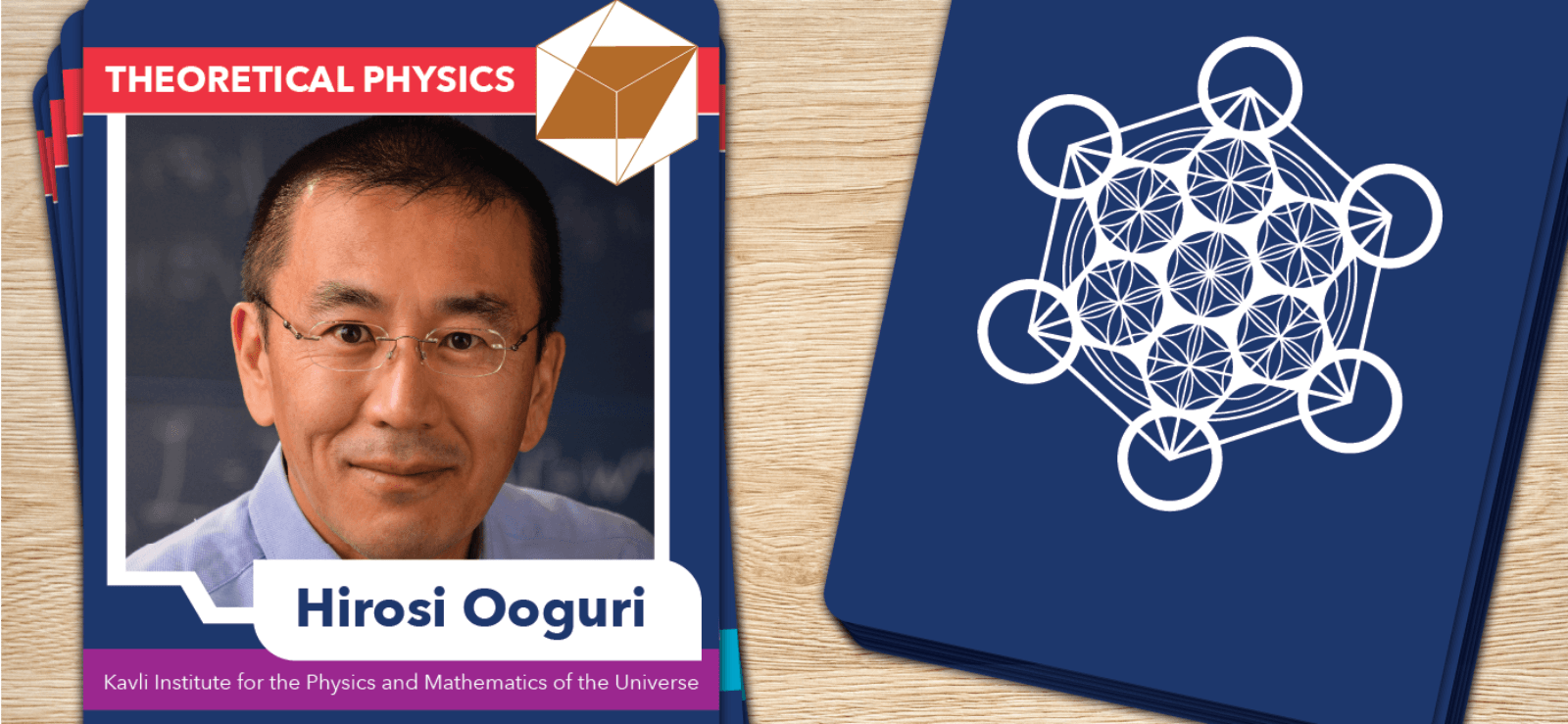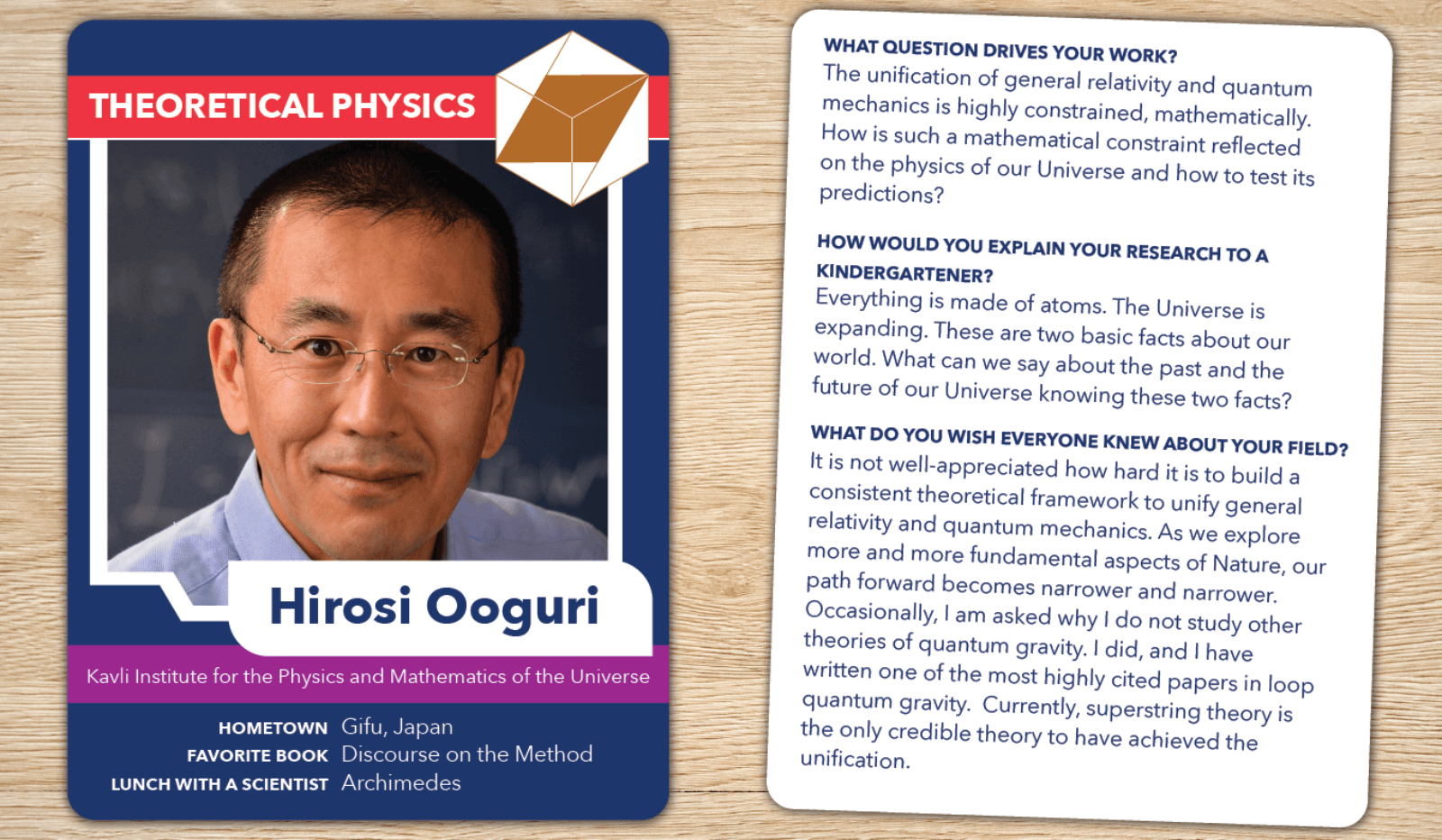Without Us, Who Understands the Universe?
Q&A with Hirosi Ooguri, director of the Kavli Institute for the Physics and Mathematics of the Universe and Fred Kavli Professor at Caltech

QUICK FACTS
Hometown: Gifu, a small town between Tokyo and Kyoto in Japan
Favorite book: “Discourse on the Method” by René Descartes
Six-Word Memoir: Without us, who understands the Universe?
Most unusual job: A janitor of my parents’ stores. I did it every summer until I got a “real job” as an assistant professor at the University of Tokyo.
Hobbies: To write popular science books in Japanese (I have written eight so far).

How did you first become interested in science? Who or what inspired you?
When I was a 5th grade student, I had a lunch with my parents at a revolving restaurant on the top floor of a department store. By knowing the height of the building (easy, since I was a fan of monster movies) and the distance to the horizon seen from the restaurant (easy, since there was my father’s hometown on the horizon), I was able to figure out the radius of the Earth by using properties of triangles I learned in school. Not very original since it is similar to what Eratosthenes did 2,200 years ago, but I was impressed that one can understand a deep fact about the universe (the size of the Earth, in this case) by the simple observation from the restaurant and by the application of elementary geometry.
What is the question that most drives your work right now?
The unification of general relativity and quantum mechanics is highly constrained, mathematically. How is such a mathematical constraint reflected on the physics of our Universe and how to test its predictions?
How would you explain your research to a kindergartener?
Everything is made of atoms. The Universe is expanding. These are two basic facts about our world. What can we say about the past and the future of our Universe knowing these two facts?
What are you most excited about or inspired by in science right now?
There will be several observations and experiments in the coming decade that will teach us a lot about how the Universe began and what is it made of. The Kavli IPMU is involved in some of the most promising projects.
What is a common misconception about your research or your field?
It is not well-appreciated how hard it is to build a consistent theoretical framework to unify general relativity and quantum mechanics. As we explore more and more fundamental aspects of Nature, our path forward becomes narrower and narrower. Occasionally, I am asked why I do not study other theories of quantum gravity. I did, and I have written one of the most highly cited papers in loop quantum gravity. Currently, superstring theory is the only credible theory to have achieved the unification.
If you could go back in time to the start of your career, what advice would you give yourself?
Learn how to write well.
What scientist, dead or alive, would you most like to have lunch with and why?
Archimedes, for his inventions of mathematical methods to quantify geometric objects and for his creative uses of the methods to understand how the world works.